Tori Amos
Tori Amos于1963年八月出生于美国北卡罗莱纳,原名Myra Ellen Amos。她的音乐天份一开始就十分明显,两岁半开始弹钢琴,四岁在教堂唱诗班演唱,五岁收到巴尔地摩Peabody音乐学院的学习邀请。 “我是一个具有良好乐感但任性的孩子,”Amos回忆道,“我被邀去一些聚会因为我会弹钢琴。我很快意识到这是天意,但我也知道我应走自己的路,而不是别人安排的路。” Amos因为不服从音乐学院的课程安排,11岁时Amos对古典音乐逐渐失去兴趣,开始疯狂迷恋Led Zeppelin,于是退学。13岁是在当地的一次比赛中因弹奏了自己创作的曲子“More Than Just A Friend” 获得一等奖。 就在此时,她发现了摇滚乐的自由。于是,她开始写歌,并在当地的一些夜总会中表演。起初在父亲的带领下,她在华盛顿的地下酒吧演奏钢琴,这一时期,Amos开始大量创作属于自己的歌曲,这使得Amos为日后的创作积累了大量财富。 也是在这期间,将近20岁时,Amos正式改名叫 Tori Amos,搬到洛山矶继续发展,并开始参与组建了自己的第一支乐队——Y Kant Tori Read。 1987年与Atlantic Records签约,那个时代正直金属流行,Amos尝试着以披挂时髦金属服饰的形象,在Atlantic旗下推出了她的第一张乐队专辑《Y Kant Tori Read》。随着唱片销量不佳,乐队彻底地散伙了。这次挫折使Amos冷静下来,她坐在自己的钢琴边,开始重新审视自己的音乐风格。 直到1991年,当挟着个人首张专辑 《Little Earthquake》重新杀回乐坛时,这个诡异精灵的红发女人终于以看似平静温娴,实则充满尖锐思想,直指性和宗教等敏感问题的作品取得了成功。这张独唱专辑《Little Earthquakes》在全球共售出二百万张,此CD包括12首歌,其中《Me and a Gun》描述了她自己曾经历的一段不幸遭遇,Amos大胆地写出了自己的感受和心情。《LittleEarthpuakes》的确掀起了一场不大不小的地震 ,她所宣扬的对犯罪的痛恨深深打动了每一个人。 1994年,Amos在亚特兰大发行了个人的第二张专辑《Under the Pink -- 粉红色的下面》,到达英国排行榜第二名位置。此CD包括金曲《God》和《Cornflake Girl》,共售出几百万张。这张专辑表现出了更强的女权倾向,而 Tori对钢琴魔鬼般的驾驭能力也得到了充分展现。 其中有一首“Icicle”的前面的一段钢琴solo和“Bells for Her”的击弦古钢琴的演奏可谓晶莹剔透,人仙莫辨。 TORI AMOS于1996年发行第三张专辑《Boys for Pele》,1998年春发行了第四张专辑《Songs From the Choirgirl Hotel》。 99年,Amos又推出了收录有新歌和现场录音的双张大碟《To Venus And Back》。她的音乐风格也逐渐从偏重民谣,爵士,过渡到了融合电子,爵士,民谣等风格的钢琴摇滚,唯一没变的是她音乐中那始终如一的尖锐和敏感。 被人爱对女人并非最重要的,被人尊重才是女人的追求,这或许是许多女艺人的梦想,Tori Amos 作为近几年以来活跃于另类摇滚坛的著名的女歌手之一,与PJ Harvey,Liz Phais Juliuan Hatfiled,Bjorke相比,Tori Amos的音乐显得更为成熟和天然,同时也不失其的个性与深刻的内涵,她所涉及的主题是女权,女性的心理,性犯罪的动机等等。 Tori Amos (born Myra Ellen Amos) was one of several female singer/songwriters who combined the stark lyrical attack of alternative rock with a distinctly '70s musical approach, creating music that fell between the orchestrated meditations of Kate Bush and the stripped-down poetics of Joni Mitchell. In addition, she revived the singer/songwriter traditions of the '70s while reestablishing the piano as a rock & roll instrument. With her 1992 album Little Earthquakes, Amos built a dedicated following that expanded with her second album, Under the Pink, before giving way to a decade-spanning legacy.The daughter of a Methodist preacher, Amos was born in North Carolina but raised in Maryland. She began singing and playing piano in the church choir at the age of four, and songwriting followed shortly afterward. Amos proved to be a quick learner, and her instrumental prowess earned her a scholarship to the preparatory school at Baltimore's Peabody Conservatory. While studying at Peabody, she became infatuated with rock & roll, particularly the music of Led Zeppelin. She lost her scholarship at the age of 11 — quite possibly due to her interest in popular music — but continuing writing songs nevertheless, eventually moving to Los Angeles in her late teens to become a pop singer. Atlantic Records signed her in 1987, and Amos recorded an uninspired pop-metal album called Y Kant Tori Read the following year. The record was a complete failure, attracting no attention from radio or press and selling very few copies; nevertheless, she didn't lose her record contract. By 1990, Amos had adopted a new approach, singing spare, haunting, semiconfessional piano ballads that were arranged like Kate Bush but had the melodies and lyrical approach of Joni Mitchell. Atlantic sponsored a trip to England in 1991, where she played a series of concerts in support of an EP, Me and a Gun.The harrowing "Me and a Gun" was an autobiographical song, telling the tale of Amos' own experience with rape. It gained positive reviews throughout the media, and both the EP and the supporting concerts sold well. Little Earthquakes, Amos' first album as a singer/songwriter, was released in 1992 and fared well in both the U.S. and the U.K. The same year, she released the Crucify EP, which featured cover songs like Nirvana's "Smells Like Teen Spirit" and Led Zeppelin's "Thank You." Delivered in early 1994, Under the Pink, the proper follow-up to Little Earthquakes, was an even bigger hit, selling over a million copies and launching the minor hit singles "God" and "Cornflake Girl." Two years later, Amos delivered her third album, Boys for Pele, her most ambitious and difficult record to date. The album debuted at number two and quickly went platinum. Amos spent much of 1997 dealing with personal matters, including a miscarriage and a marriage. She also worked on her fourth album, From the Choirgirl Hotel, which was released in the spring of 1998. The two-disc To Venus and Back followed in 1999 to coincide with a tour with Alanis Morissette. In 2001, Amos returned with the covers album Strange Little Girls, which also marked her last release for Atlantic. The next year, she found a new label home with Epic and followed with Scarlet's Walk in October. Her eighth studio album, an autobiographical record titled The Beekeeper, was released in 2005. The massive five-disc Piano collection arrived in 2006, boasting a cornucopia of album cuts, B-sides, unedited and alternate versions, demos, and seven previously unissued tracks, followed by the typically eclectic and hard-rocking American Doll Posse in 2007, an all-new collection of songs that found the artist assuming five archetypal personalities, all of whom were based on feminine gods in Greek and Roman mythology. As she toured in support of the album, Amos released live digital recordings of each concert as part of the Legs and Boots concert series, which grew to encompass 27 albums. Although each release was made available via iTunes and other online vendors, Amos also released a "best-of" Legs and Boots compilation in March 2009, having created its track list from various recordings during the tour. Meanwhile, she also focused on new material that had been written during the tour, which she soon compiled into her tenth studio album. Entitled Abnormally Attracted to Sin, the album was released in May 2009 by Universal Republic, Amos' new record label.

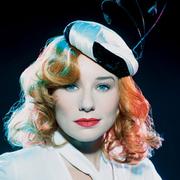
 Caught A Lite Sneeze(Remastered) - Tori Amos
Caught A Lite Sneeze(Remastered) - Tori Amos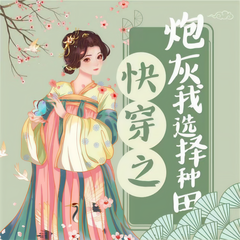
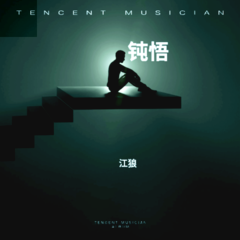


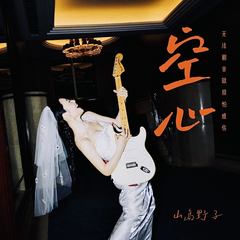
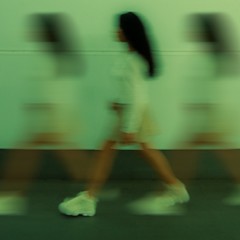





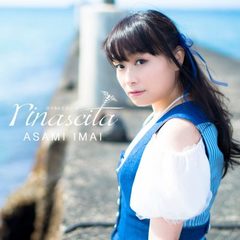

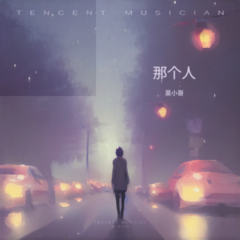
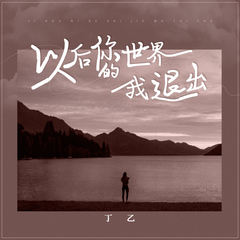














![[STATION] aespa《Dreams Come True》MV Teaser - aespa (에스파)](https://img2.kuwo.cn/wmvpic/324/79/54/2120387380.jpg?imageView2/1/w/195/h/130/format/jpg/q/60)





